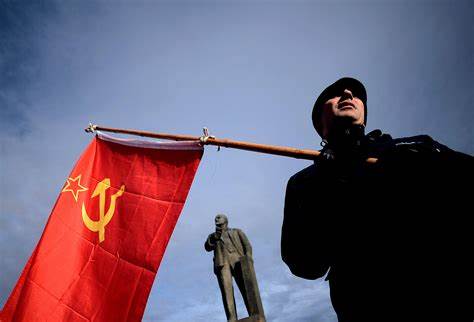
rewrite this content and keep HTML tags
On Saturday’s WarRoom program, with host Dave Brat, Dr. Bradley Thayer addressed three key topics regarding China’s influence and threat to global stability.
Thayer told Brat that he concurs with Colonel John Mills’s analysis that “China is behind” most global hotspots, emphasizing that the Chinese Communist Party (CCP) is akin to Reagan’s view of the Soviet Union as “the center of evil in the modern world.” Thayer argues that China’s political and military strategies are designed to “undermine the United States and our interests,” highlighting their expansion into Africa, South America, and Southeast Asia as part of their broader plan to overthrow the U.S. and its allies.
The following is an expanded discussion on each of the three points addressed by Thayer in the conversation with Dave Brat that are most important to understand about confronting the Chinese Communist Party:
1. China’s Role in Global Hotspots
Thayer argues that China is a major instigator of global instability, asserting that the Chinese Communist Party (CCP) is actively “igniting and sustaining a lot of these conflicts.” He agrees with Colonel John Mills’s analysis, which identifies China as a key player behind geopolitical tensions worldwide, including those in regions like the Caribbean, South America, Asia, Europe, and the Middle East. According to Thayer, China’s influence is a direct threat to U.S. interests and global stability. He likens China’s current role to the Soviet Union during the Cold War, referencing Reagan’s view that the Soviet Union was “the center of evil in the modern world.” Thayer warns that China’s support for regimes like Russia and Iran is part of a broader strategy to undermine Western power and influence.
He emphasizes the significance of China’s strategic alliances, highlighting its “political warfare strength” and “military capabilities” as instruments used to destabilize regions and challenge U.S. hegemony. Thayer argues that “the fundamental point is to overthrow the United States,” highlighting the CCP’s intent to displace the U.S. as a global leader. He stresses the need to recognize the CCP as the primary driver of these global conflicts, suggesting that the CCP’s actions are designed to create a world order that favors authoritarian regimes. This calls for a concerted effort to counter China’s influence by recognizing the CCP as an illegitimate government that seeks to expand its power through “tyrannical methods.” Thayer calls for a coalition of “people of goodwill around the world” to combat the CCP’s ambitions and protect democratic values globally.
2. China’s Economic and Military Strength
Thayer discussed China’s economic and military capabilities, highlighting both its strengths and vulnerabilities. He notes the mixed reports about China’s economic health, acknowledging the presence of “negative news on the economy” while also recognizing China’s “intelligent long-range plans” like the Belt and Road Initiative. Thayer points out that China has rapidly grown its economy over the past decades, converting this economic power into significant military and diplomatic strength. He argues that this expansion has enabled China to exert influence across the globe, making it a formidable adversary to the United States and its allies.
Despite the reports of economic decline, Thayer cautions against underestimating China’s potential. He states that “their economy has stalled,” but emphasizes that the CCP has accumulated substantial resources and power, allowing them to “convert that wealth into military might, diplomatic power, and technology.” This growth has positioned China as a major global player, capable of challenging the U.S. in various domains. Thayer warns that under Xi Jinping’s leadership, China is particularly dangerous, describing Xi as a “hyper-aggressive leader” who is willing to take risks to advance China’s interests. He emphasizes the importance of recognizing this threat and calls for strategic actions to counter China’s influence.
Thayer urges the U.S. to “cut off any investment with China” and focus on bolstering its own economy. He highlights the danger posed by Xi’s aggressive policies, warning that the CCP is likely to become “very aggressive” against the U.S. and its allies. Thayer’s analysis underscores the need for vigilance and strategic planning in addressing the challenges posed by China’s economic and military ambitions.
3. The Nature of the CCP and the Threat to the U.S.
Thayer highlighted the Chinese Communist Party (CCP) as an existential threat to the United States, arguing that China is “at war with us today” through political warfare. He parallels the Cold War dynamics with the Soviet Union, asserting that China is engaged in a strategic conflict with the U.S., albeit not through direct military confrontation. Thayer warns that China has declared a “people’s war” against the United States, signaling its intent to undermine American sovereignty and global influence.
Thayer criticizes the CCP as an “illegitimate government” that rules through oppressive means and does not represent the Chinese people’s will. He points to historical events like Mao Zedong’s intentional famine, which resulted in the death of millions, as evidence of the regime’s disregard for human life. Thayer emphasizes that the CCP’s aggressive policies are driven by an ideology that prioritizes party interests over the well-being of the Chinese populace. He argues that the CCP’s actions are aimed at destabilizing the U.S. and promoting an authoritarian world order.
To counter this threat, Thayer advocates for a robust response from the U.S. and its allies. He urges policymakers to “stop investments and trade with China,” focusing instead on strengthening domestic industries and building alliances with “people of goodwill” worldwide.
Thayer emphasizes the importance of recognizing the CCP as a dangerous adversary and taking decisive actions to neutralize its influence. He calls for a collective effort to oppose the CCP’s ambitions and safeguard democratic values, highlighting the need for a strategic approach to counter China’s global influence.
Watch the full interview from Saturday’s WarRoom program:
Bradley Thayer Hammers Necessity To Confront Illegitimate CCP Regime
The post China’s Shadow War, Dr. Bradley Thayer Exposes CCP’s Global Schemes and U.S. Strategic Failures appeared first on Stephen K Bannon’s War Room.
